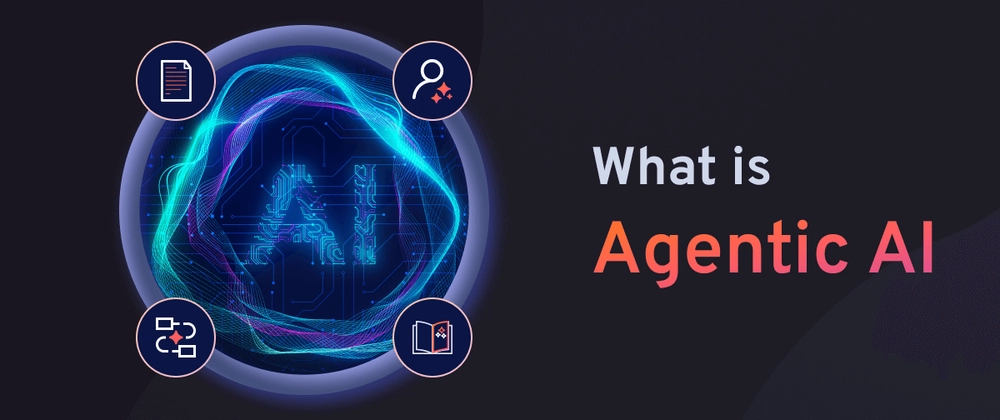Hey everyone! 👋
In this article, we’ll explore one of the most revolutionary shifts in artificial intelligence today — Agentic AI, where machines are no longer just reactive assistants but become autonomous digital agents capable of achieving goals on their own, with minimal human intervention.
🤖 What is Agentic AI?
Unlike traditional AI systems that respond to specific prompts or follow rule-based instructions, Agentic AI refers to intelligent systems that exhibit goal-oriented behavior, decision-making abilities, and the capacity to act autonomously in dynamic environments.
They don’t just wait for your next command — they plan, reason, and act in pursuit of a desired outcome.
🧠 Think of it like an AI "employee" that understands your company objectives and actively works toward them — without micromanagement.
⚙️ How Does Agentic AI Work?
At the core of agentic AI are the following components:
- Goal-Driven Architecture: The agent is given a goal (e.g., “optimize ad performance”) rather than a set of commands.
- Autonomous Planning: The AI can create and modify plans using tools like language models (LLMs), logic trees, or graph-based systems.
- Tool Use: Agentic AI agents can utilize APIs, databases, browsers, or even interact with humans and other AIs to accomplish tasks.
- Self-Reflection: Agents assess their progress and adapt strategies based on results or feedback.
- Long-Term Memory: Storing context over time helps the AI act coherently across complex workflows.
A popular example of this approach is Auto-GPT, which chains together GPT calls to self-prompt and iterate on tasks until goals are reached.
🧪 Use Cases of Agentic AI
Autonomous Research Assistants
- Collect and summarize vast information
- Analyze competitors or market trends
Code Generation & Bug Fixing Agents
- Automatically write, test, and debug code
- Integrated into CI/CD pipelines
Sales Automation Agents
- Reach out, follow up, and schedule meetings
- Customize outreach based on prospect profiles
Customer Support Agents
- Handle queries across channels autonomously
- Escalate to humans only when needed
Business Strategy Planners
- Run simulations, forecasts, and scenario modeling
- Make recommendations based on real-time data
⚠️ Challenges & Risks
While the potential is massive, agentic AI isn't without its risks:
- Loss of control: Autonomous agents could take unintended actions.
- Bias in decisions: Poorly trained models can amplify harmful patterns.
- Security vulnerabilities: Misuse of tools like web scraping, email automation, etc.
Proper guardrails, ethical considerations, and clear oversight are essential before deploying such systems.
🔮 The Future of Agentic AI
We’re entering an era where digital workers powered by AI agents could work 24/7, scale on demand, and learn over time.
Big players like OpenAI (AutoGPT, GPT-5 agent framework), Meta (AgentBench), LangChain, and DeepSeek AI are heavily invested in this frontier.
Soon, you might not just use AI as a tool — you’ll delegate entire goals to an AI team that works independently.
Thank you for reading! ❤️
Stay tuned for more deep dives into the bleeding edge of AI, webdev, and everything tech!



Top comments (1)
Some comments may only be visible to logged-in visitors. Sign in to view all comments.